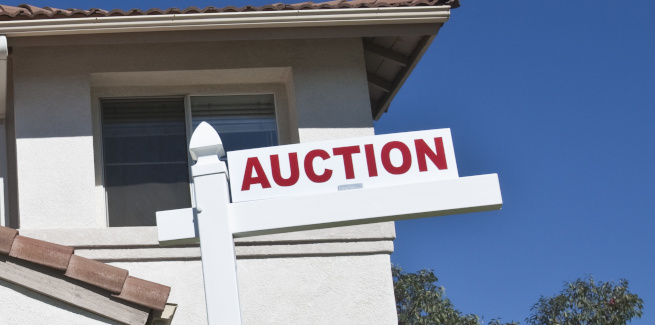A total of 2,537 homes were taken to auction across the combined capital cities last week (ending 13 December 2020), according to CoreLogic’s most recent Property Market Indicator.
While auctions were marginally lower than the 2,804 held over the same week in 2019, they are up markedly on the 2,085 auctions held the week prior.
The boost in auction numbers come as activity remains unusually high in the lead-up to the festive period, driven by strong demand and high confidence.
“Typically, auction markets would be winding down after the second week of December. However, this year auction activity is set to remain high leading into the festive period, with CoreLogic expecting around 2,300 auctions to be held over the coming week,” the report noted.
However, the preliminary clearance rate dipped slightly from 75.1 per cent in the first week of December to 74.6 per cent last week.
With the previous week’s final clearance figures falling to 69.9 per cent, the final result for this past week is also expected to be slightly lower than preliminary figures.
Melbourne and Sydney both saw their busiest auction week since early April, with over 1,000 homes taken to auction in each city.
Melbourne saw the preliminary auction clearance rate remain stable under higher auction volumes, with 73.5 per cent of homes selling after a virtually unchanged 73.6 per cent preliminary result last week, which later revised down to 67.7 per cent at final collection. There were 1,131 properties auctioned across the city over the week, up from the 899 the week prior. This is still far lower than the 1,405 auctions held one year ago.
Sydney, on the other hand, was host to 1,006 auctions last week, up from 867 auctions the week prior. However, it is noticeably higher than the 875 auctions held one year ago.
A preliminary auction clearance rate of 76.5 per cent was achieved last week.
Across the smaller markets, Canberra recorded the highest preliminary clearance rate of 87.2 per cent over 113 auctions, followed by Adelaide with a preliminary clearance rate of 76.1 per cent across 96 results.
Brisbane and Perth followed, with preliminary auction clearance rates sitting at 64.1 per cent and 58.3 per cent, respectively.
Home values
CoreLogic recorded the combined capital city home value growth at 0.2 per cent over the week.
Perth led the charge with a 0.4 per cent increase, followed by Adelaide and Melbourne with 0.3 per cent increase, and Brisbane and Sydney with 0.2 per cent increase.
Over the past month, Perth and Adelaide emerged as the winners, with home value growth sitting at 1.3 per cent and 1.5 per cent, respectively. Following them were Brisbane and Melbourne with 0.7 per cent increase, then Sydney with 0.5 per cent increase.
In terms of year-to-date change, only Melbourne recorded a decline at -2.0 per cent. On the other hand, Adelaide recorded a 5.3 per cent increase – much higher than Brisbane with 2.8 per cent, Sydney with 2.2 per cent and Perth with 1.2 per cent.
Over the past four-week period, the capital city private treaty median price was highest in Sydney and Canberra for houses (at $841,000 and $732,500, respectively).
Sydney also holds the pole position for units, with a private treaty median of $645,000, while Melbourne follows with an average figure of $570,000.
Perth was once again the most affordable capital city for houses, with the private treaty median price sitting at $490,000. Meanwhile, Darwin was the most affordable for units at $320,000.
Private treaty sales represent around 85 per cent of all dwelling sales across the country, according to CoreLogic.
Average time on market for houses increased across most capital cities over the week, with the longest recorded in Darwin at 63 days, followed by Brisbane (51), Perth and Canberra (40), Adelaide (35), and Sydney and Melbourne (32). Hobart had the shortest time on market at 28 days.
For units, Darwin also recorded the highest number at 75 days, while Hobart was also the lowest at 28 days.
Vendor discounting for houses was highest in Hobart at -4.1 per cent and lowest in Sydney at -2.1 per cent. For units, vendor discounting was highest in Perth at -4.2 per cent and lowest in Canberra at -1.6 per cent.
 ;
;